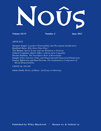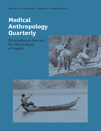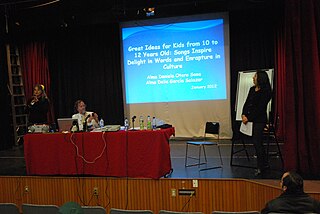
English as a second or foreign language refers to the use of English by individuals whose native language is different, commonly among students learning to speak and write English. Variably known as English as a foreign language (EFL), English as a second language (ESL), English for speakers of other languages (ESOL), English as an additional language (EAL), or English as a new language (ENL), these terms denote the study of English in environments where it is not the dominant language. Programs such as ESL are designed as academic courses to instruct non-native speakers in English proficiency, encompassing both learning in English-speaking nations and abroad.
Ahmar Mahboob is a Pakistani linguist. Currently he is an associate professor at the Department of Linguistics at the University of Sydney. He has worked in the fields of language policy development, pidgin and creole languages, NNEST studies, English language acquisition, English language teaching and teacher education, World Englishes, pragmatics, and minority languages in South Asia. Ahmar earned his PhD from Indiana University Bloomington in 2003, and has published extensively. He was the co-editor of TESOL Quarterly, alongside Brian Paltridge, for several years. He was also the Associate Editor of Linguistics and the Human Sciences and serves on the editorial boards of a number of journals. Ahmar has organised a number of regional, national, and international conferences and is the convenor and the co-creator of the Free Linguistics Conference.

Noûs is a quarterly peer-reviewed academic journal on philosophy published by Wiley-Blackwell. It was established in 1967 by Hector-Neri Castañeda and is currently edited by Ernest Sosa. The journal is accompanied by two annual supplements, Philosophical Issues and Philosophical Perspectives.
Kathleen Bardovi-Harlig is an American linguist. She is currently Provost Professor and ESL Coordinator at Indiana University (Bloomington).
The European Journal of Philosophy is a peer-reviewed academic journal of philosophy published quarterly by Wiley-Blackwell. It was established by Mark Sacks in 1993 and the current editor-in-chief is Joseph K. Schear.
Philosophy & Public Affairs is a quarterly peer-reviewed academic journal published by John Wiley & Sons. It publishes philosophical articles on legal, social, and political issues. The journal was established in 1972 under the sponsorship of Princeton University Press. Blackwell became the journal's publisher in 2004. The current editor-in-chief is Anna Stilz. According to the Journal Citation Reports, the journal has a 2020 impact factor of 2.000, ranking it 100th out of 183 journals in the category "Political Science" and 20th out of 56 journals in the category "Ethics".

Medical Anthropology Quarterly (MAQ) is an international peer-reviewed academic journal published for the Society for Medical Anthropology, a section of the American Anthropological Association, by Wiley-Blackwell. It publishes research and theory about human health and disease from all areas of medical anthropology. The purpose is to stimulate important ideas and debates in medical anthropology and to explore the links between medical anthropology, the parent discipline of anthropology, and neighboring disciplines in the health and social sciences. According to the Journal Citation Reports, the journal has a 2019-2020 impact factor of 2.475, ranking it 18th out of 45 journals in the category "Social Sciences, Biomedical".
TESOL Quarterly is a quarterly peer-reviewed academic journal published by Wiley-Blackwell on behalf of TESOL International Association. It covers English language teaching and learning, standard English as a second dialect, including articles on the psychology and sociology of language learning and teaching, professional preparation, curriculum development, and testing and evaluation. The editors-in-chief are Charlene Polio and Peter De Costa, both at Michigan State University. TESOL also publishes TESOL Journal.

TESOL International Association, formerly Teachers of English to Speakers of Other Languages, is the largest professional organization for teachers of English as a second or foreign language. It was founded in 1966 and is based in Alexandria, Virginia, in the United States. As of 2018, it had 10,113 members worldwide and was affiliated with 109 language education organizations, just over half of which were based outside the United States. TESOL's total number of members, including those of affiliate organizations, was around 44,000.

History of Education Quarterly is a quarterly peer-reviewed academic journal covering the history of education. It is published by Cambridge University Press on behalf of the History of Education Society and was established in 1949 as the History of Education Journal, obtaining its current name in 1961. At the time, Ryland W. Crary became the editor-in-chief. He was succeeded by Henry J. Perkinson ; Paul H. Mattingly and James McLachlan ; Edward McClellan ; William J. Reese ; Richard J. Altenbaugh ; James D. Anderson, Yoon Pak, and Christopher Span ; Nancy Beadie and Joy Williamson-Lott. The current co-editors are AJ Angulo and Jack Schneider.

Diane Larsen-Freeman is an American linguist. She is currently a Professor Emerita in Education and in Linguistics at the University of Michigan in Ann Arbor, Michigan. An applied linguist, known for her work in second language acquisition, English as a second or foreign language, language teaching methods, teacher education, and English grammar, she is renowned for her work on the complex/dynamic systems approach to second language development.
John Henry Esling, is a Canadian linguist specializing in phonetics. He is a Professor Emeritus of Linguistics at the University of Victoria, where he taught from 1981 to 2014. Esling was president of the International Phonetic Association from 2011 to 2015 and a co-editor of the 1999 Handbook of the International Phonetic Association.

Charlene Polio is an American linguist. She is currently a professor in the Department of Linguistics, Languages, and Cultures at Michigan State University, The United States. Her research focuses on second language acquisition with a special focus on second language writing.
Carol Ann Chapelle is an American linguist and Angela B. Pavitt Professor in English at Iowa State University.
Presidential Studies Quarterly is a quarterly peer-reviewed political science journal dedicated to the scholarly study of the presidency of the United States. It was established in 1971 as Center House Bulletin, obtaining its current name in 1974. It is published by Wiley-Blackwell on behalf of the Center for the Study of the Presidency and Congress. The editor-in-chief is George C. Edwards III. According to the Journal Citation Reports, the journal has a 2017 impact factor of 0.908, ranking it 104th out of 169 journals in the category "Political Science".
Scott Andrew Crossley is an American linguist. He is a professor of applied linguistics at Vanderbilt University, United States. His research focuses on natural language processing and the application of computational tools and machine learning algorithms in learning analytics including second language acquisition, second language writing, and readability. His main interest area is the development and use of natural language processing tools in assessing writing quality and text difficulty.
Alison Mackey is a linguist who specializes in applied linguistics, second language acquisition and research methodology and is one of the most highly cited scholars in the world in these areas.
Sarah Jane Mercer is a British linguist. She is currently the head of the Department of English Language Teaching at the University of Graz, Austria. Her research focuses on applied linguistics, with a special focus on psycholinguistics from a Complex Dynamic Systems Theory approach.

Kata Csizér is a Hungarian linguist. She is currently a professor at the School of English and American Studies of the Faculty of Humanities of the Eötvös Loránd University, Hungary. Her research focuses on applied linguistics with a special focus on motivation in second-language learning and teaching students with special needs.







